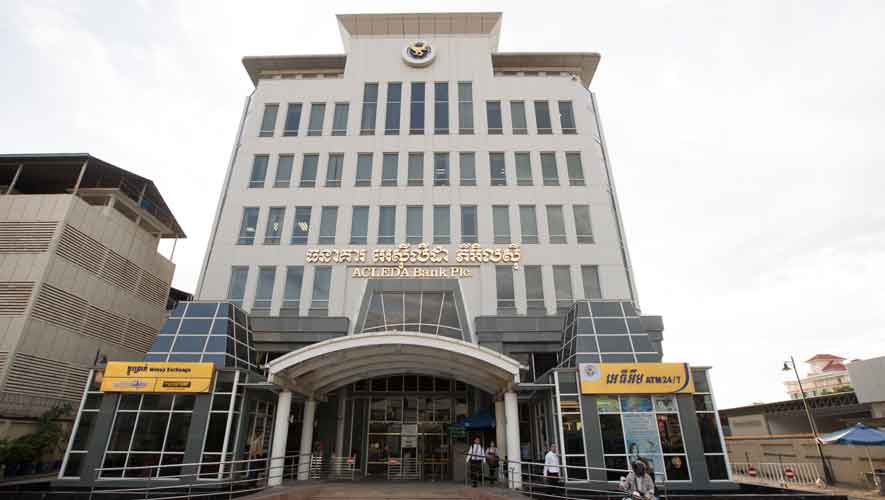2011 was a notable year on a number of fronts. It marked the start of the Arab Spring that led to the downfall of several Arab leaders, including the killing of Muammar Ghadaffi of Libya and the terrorist al-Qaeda leader Osama Bin Laden.
For the latest Cambodian Business news, visit Khmer Times Business
Nearly 16,000 Japanese died following an earthquake and tsunami with nearly 4,000 missing.
Closer to home, the number who lost their lives with the flooding of the Cambodian stretch of the Mekong and attendant flash floods hit 207.
Meawhile, Cambodia produced its first Development Effectiveness Report, which looked at promoting the welfare and developing resilience in the Kingdom’s economy and society.
It was also the year that the film Limitless was released to enormous box office success.
For those unfamiliar with the fast-paced and innovative movie, it is about an author called Eddie, played by Bradley Cooper, faced with the seemingly impossible task of finishing his book, who, according to Variety critic Robert Koehler, happens upon a pill that enables him to experience astonishing levels of clarity, perception and energy by opening up the 90 percent of our brains we humans tend to leave dormant.
These latter two events may seem worlds apart but they share one thing in common.
First, Limitless is the favourite film of His Excellency Samheng Boros, Secretary of State in Cambodia’s Ministry of Social of Social Affairs, Veterans and Youth Rehabilitation.
Second, his unspoken motto would appear to be the promotion of the welfare and resilience of the nation’s economy and society against the odds with the kind of dynamism and enthusiasm Limitless “Eddie” displays, but without the use of artificial stimulants.
His Excellency’s current athletic physique and Hollywood good looks bely the fact that he has lost 20 kilogrammes in weight not just once but twice in his 16 years as a politician, surviving and in fact thriving in a world of turmoil, great expectations and many obstacles.
Work ethic
To what does he put that weightwatcher’s dream to? It’s not just the intermittent fasting and drinking three to four litres of water a day that he practices or the fact the 38-year-old is father of two children, a boy aged 8 and a girl aged 6, who no doubt also keep him active.
The Secretary of State also stresses his drive comes from a strong and focused work ethic. He’s also keen on the book, “You are the Placebo” by Dr Joe Dispenza, who shares numerous documented cases of those who reversed serious illness and negativity by choosing to believe in a placebo, the idea that your brain can convince your body that a fake treatment is the real thing and thus stimulate healing with positive thinking.
Plus His Excellency has just read a book on Lee Kuan Yew, who transformed Singapore from a backward tropical sleepiness into a First World and very rich country.
Passion for world history
The Secretary of State, who represented Cambodia on the international stage in youth golf, has a passion for world history, self-improvement, quantum physics, neuroscience, meditation, changing mindset, nutrition, altering perceptions, adapting and becoming stronger. He’s looking to write his own book on pushing one’s limitations and trying to inspire people to do good.
In other words, he’s a driven man and not one of those narcissistic politicians who spend all day staring at their reflections.
If you can see his ambitions for Cambodia in those facts, you are on the right track.
For the Secretary of State, a move into politics was as natural as a carpenter’s son becoming a carpenter or a seamstress’ daughter becoming a seamstress. His father is Labour and Vocational Training Minister Samheng Ith and he grew up discussing social issues around the family dinner table in a country then bursting at the seams with nongovernmental organisations and United Nations employees working to restore order to a country brought to its knees by the atrocities of the murderous, brainwashed Khmer Rouge and other internecine conflicts that led to the slaughter of many of the intelligentsia or their banishment to harsh agricultural labour. As such, he dismisses claims of nepotism and being a princeling. “You grow up in a business, you learn from your father. I want to work for my country. I must prove myself. We learn from the best in the world,” he insists.
Now the country of 16 million has 66 percent of its population aged under 38, a largely under-educated workforce, a lack of skilled employees and high levels of poverty and drug-dependency among many youths.
Double-edged sword
The relative youth of the population is seen as a double-edged sword in that the drug-free younger ones are adaptable to the needs of modern technology while the older ones are set in their ways.
In any country’s book, that’s a tough portfolio to take on but one that the down-to-earth Boros (he insists I call him by his given name) is not shy of tackling.
Speaking at his offices in Monivong Boulevard, His Excellency (I can’t bring myself to address him as plain Boros despite his friendly manner), he says he was taught in Cambodia until he was 16 or 17 then did a degree at Colorado State University-Pueblo in business management in the United States before embarking on a master of business management at Charles Sturt University in Australia in, where he perfected his English and political knowledge, before assuming a job in the ministry he has called his second home for 16 years, starting as an official before rising into government.
“The younger generation is making changes. It is becoming entrepreneurial. Younger people have had to witness a lot of suffering psychologically and it’s hard to recover. There is little guidance available. They have spent 10 to 20 years trying to survive on their own. Now they can. They can see the rest of the world through Facebook. We have to believe in our nation and believe in what has been done.
‘Anyone can get ahead’
It’s taken almost 30 years to recover from turmoil. Most of our highly educated people understand the past. Healthcare, security and education were not there then. Now anyone can get ahead. We want to maintain growth and redistribute it. That is now my job,” His Excellency said.
Despite being one of the poorest nations in the region, the country is growing fast, with an open market economy and a gross domestic product (GDP) of $24.57 billion in 2018. Although wages are low, its GDP has been growing at about 7 per cent and is expected to exceed the powerhouse of China next year. It attracts increasing foreign direct investment because of its legion of cheap young labour in its main businesses of garments, agriculture, tourism and gambling while construction rose 78 percent year-on-year comparing the first nine months of 2018 and 2019.
‘Rich and poor gap closing’
His Excellency says the gap between rich and poor is closing in comparison with other countries in the Asia-Pacific region.
When asked what his greatest achievement so far is, he says it is making Cambodia part of the international adoption law, improving disability rights and becoming chairman of the board of social security for civil servants and their pension rights. Further, he has developed new services and volunteers for the Union of Youth Federations of Cambodia, for which he donates blood, helps build houses and improves education.
Developing schools, an educational curriculum, hospitals and infrastructure is also on his mind.
Singapore as benchmark
As much as 22 percent of GDP is going on social protection schemes, when the global average is 11.2 percent. The Secretary of State is spending on every social sector, with a resultant big drop in poverty – now at 10 percent compared with 40 to 50 percent two decades ago (figures endorsed by UN data). Helping the poor, the elderly, pregnant women and children, creating a retirement pension and insurance for job injuries, improving child nutrition, ensuring every child has a government provided meal and every father a job, building specialist centres to help youth drug addicts, putting social workers in schools so teachers don’t also have to act as cousellors as they do now, developing social work as a profession – they are all in his in-tray.
Trust easy to break
“No other countries have been through what this country has but we see Singapore as our benchmark,” he says. “People have to trust the government and the civil service and we must earn that trust in the interests of social cohesion. Trust is easy to break. Cambodia is not yet a stable society but I want to inspire our youths. Youths here have volunteered to clean the city, organised traffic – you see them on street corners helping out.”
His Excellency, who has 20 staff, accepts the country is currently a one-party system but he wants opposition for checks and balances on government actions. “We accept criticism. That’s what it takes to earn the trust of the people,” he says.
‘EBA will be removed’
Samheng Boros believes the everything-but-arms deal with the European Union by which there are no tariffs on goods not connected with conflict will be taken away at some point. “So we have been working hard to find an alternative source of income. We are doing a lot to empower our people. We are building centres for homeless people. As a Buddhist country we believe in giving back,” he said.
As an example of what has been achieved so far, maternal mortality rates per 100,000 live births fell from 472 in 2005 to 170 in 2014. Under-5 mortality rates fell from 83 per 1,000 live births to 35 in 2014 compared with 2005, according to the government’s National Social Protection Framework, but only 36 percent of 3 to 5 year olds are enrolled in early education. Net enrolment in primary education rose from 82 percent in 1997 to 97 percent in 2016.
Policy items
However secondary school completion rates, at 57 percent, are below the average for lower middle income countries despite more than 17,500 students being enrolled in 350 new classrooms. Life expectancy was 72 in 2014, compared with 55 back in the year 1995.
In the National Protection Policy Framework 2016-2025 drawn up by the Secretary of State’s depatment, there is a chapter devoted to policies in the short-term, medium-term and long-term.
Supportive infrastructre
Those policies include food security programmes; human resource developent; supporting programmes for the pregnant and under-5s; school-feeding programmes; scholarships for primary education; pensions for both civil servants and other workers and employees (including the informal sector); health insurance insurance shemes for the same groups; supportive infrastructure; employment injury schemes; unemployment insurance; disability insurance, labour rehabilitation; vocational training, policy; regulatory and operator levels, legal and regulatort framework; investment; tax policy; registration system and the wider education system including sports.
His Excellency is full aware these elements will involve cross-ministry cooperation but is confident that can be achieved and monitored and evaluated with the government on the same page.
Time will tell
One can conclude that a drawn-out policy and enaction battle is slowly being won and His Excellency is confident Cambodia will achieve its ambition for a country enjoying upper-middle-income status by 2030 in line with government policy.
Of course, only time will tell but, with the right helmsman, and with his motto, “I believe in Cambodia”, the prospects could be, ahem, limitless.




